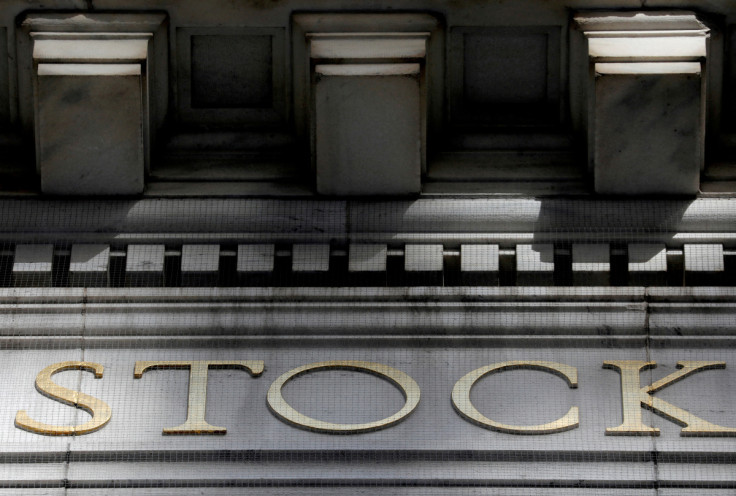Stock Markets Across the G20 Are under Strain as They Face a Host of Challenges
Whilst high interest rates are putting pressure on Western stock exchanges, China and Russia are facing difficulties of their own.

Recently we have witnessed the global stock markets fall under strain from a whole host of contributing factors.
Whilst markets in the West are reacting negatively to the persistence of high-interest rates, there are signs of somewhat unusual state control elsewhere in the G20, particularly in China and Russia.
In New York, there was unwelcome news as several indices fell in response to the Fed's latest decisions. The Federal Reserve Committee held the base rate steady at between 5.25 per cent and 5.5 per cent but said it expected one further rate hike before the year was up.
Although rates are still expected to decline in 2024, it now appears that any relief will take longer than predicted to materialise. Goldman Sachs revised earlier projections, saying it now anticipates a rate drop only in the fourth quarter of 2024.
The S&P 500 was down 1.6 per cent, with the Dow Jones Industrial Average losing one per cent. The tech-heavy NASDAQ composite led the rout, dropping by 1.8 per cent.
Investors were feeling skittish, as the sustained interest rate hike meant increased pressure on stocks and bonds. The Fed's announcement pushed up the yield on the 10-year Treasury, which at one point on Thursday touched its highest level in 15 years.
In some positive news for the US, unemployment claims fell to their lowest since January, hinting at some strength in the labour market.
Elsewhere, in Britain, following a surprise drop in inflation figures, rates held steady, as they did in Switzerland. Norway however, increased rates, and expects to do so again in December.
Whilst global stock markets are reflecting the high inflation, high-interest rate reality, China's stock market is serving as a quizzical mirror for the country's economic slowdown — and President Xi Jinping's peculiar response to that cooling down.
In a novel bid to combat China's stagnant growth and faltering real estate market, Xi is using listing and trading rules to encourage investment into sectors that fit with his priorities.
In what the regime is calling the "new whole-nation system", capital is being focussed on areas of science and technology that are deemed vital to Xi's strategic goals of technological self-sufficiency and national security.
In a shift that emphasises party policy above-market returns, Xi is directing domestic private equity towards tech including semiconductors, electric vehicles, batteries and other high-end manufacturing.
By contrast, in the recent past, even in China's controlled macroeconomic environment, policy goals and investment returns have been generally balanced. One example of the latter approach is China's National Integrated Circuit Industry Investment Fund (NICIIF), a key player in the country's semiconductor strategy.
However, a string of abysmal investments by the NICIIF in some regional chipmakers is likely to have been one of the catalysts for the revised, more controlled, policy. NICIIF has been besieged by corruption allegations and come under fire for prioritising low-cost companies over higher-end rivals that may compete on a global scale.
Thus far the results of the policy swing are less than inspiring. China's domestic market has raised USD 40 billion, almost half the global total this year and yet, its benchmark CSI index is down 14 per cent since January. The Chinese stock market is lagging behind global comparators. The S&P 500 and the Tokyo-based Topix, for instance, are outperforming the CSI by far.
Whilst the government has directed domestic institutional investors to buy and then hold equity in strategic industries, foreign investors who have a freer hand have voted with their feet.
Veterans of the market say this approach is unsustainable. Moreover, an investment banker at one of China's largest brokers said: "Rather than changing market expectations through altering supply or demand, [policymakers] are guiding buy-and-hold funds into the market . . . which cannot work in the long term."
There is concern that the tech-focused investment China is pushing will not be able to fulfil the State's aim of increasing middle-class wealth. Furthermore, more government control has been criticised as likely to keep a dampener on foreign investment.
Meanwhile, neighbouring Russia is also witnessing state intervention in its stock market, though for different reasons.
A widespread share buyback is underway. Following Russia's February 2022 invasion of Ukraine, sweeping Western sanctions have heavily restricted the influx of foreign capital into the country.
Last week, Russian retailer Magnit became the first publicly traded firm to buy back blocked shares from Western investors. Whilst the offer to buy back was the first such opportunity presented to foreign investors, the firm purchased the shares at a 50 per cent discount.
As more companies look to follow, with Luk Oil's request being currently reviewed, the state has indicated that a 10 per cent "budget contribution" in addition to the share price discount will become standard — this has been termed an "exit tax" by Washington.
As the state looks into more requests for buybacks, the Russian government commission that monitors foreign investment has said it will force companies buying back shares from Western investors to re-list some of those shares on the domestic stock market.
© Copyright IBTimes 2025. All rights reserved.


















